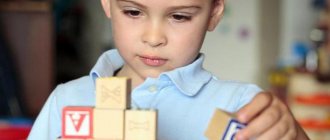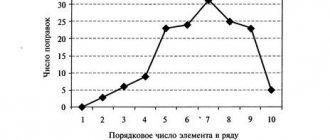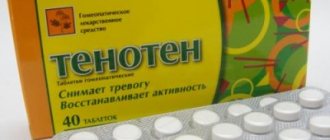Human memory is a complex and important phenomenon. A person who is unable to influence this process becomes outside of social society. When problems start, it becomes difficult to carry out the simplest actions. That is why doctors of general and narrow specialties, psychologists have long been struggling with the question of how to improve memory quickly and without consequences, to return a person to normal functioning. Treatment may vary depending on the symptoms and severity of the disease:
- use of medications;
- folk remedies;
- brain training;
- solving psychological problems.
Experts are confident that an integrated approach works best. In fact, there are quite a few reasons for memory deterioration. It is this factor that is the “thorn” when prescribing treatment. Children, the elderly, men and women, people of different social status suffer from this disease. Let's look at the most common reasons:
- Alcoholism. And here we are not talking about evenings when a drunk person forgets the events of the previous night. We are talking about constant failures even in a sober state. A strong blow from alcohol to the nervous system, liver function, and brain activity destroys the body.
- Alzheimer's. Unfortunately, it must be reported that the disease has long passed the threshold of retirement age closer to young and completely healthy people.
- Atherosclerosis, stroke, other brain damage.
- Mental illnesses of various forms.
- Asthenia, as a result of constant stress, chronic fatigue, lack of sleep.
- Congenital mental retardation.
- Traumatic brain injuries.
And this is not a complete list of reasons for memory deterioration, both in adulthood and at a very young age.
What to do to restore memory
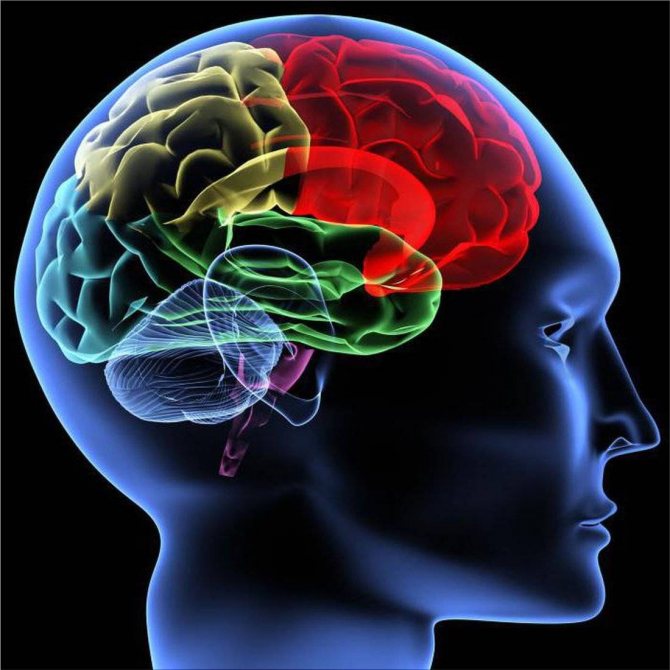
Restoring the functioning of the brain and nerve endings is what the ability to reproduce information directly depends on. Doctors advise that in addition to exercise, you must also resort to drug treatment. Recommended drugs that improve memory and attention:
- Glycine;
- Biotredin;
- Piracetam;
- Phenotropil;
- Vitrum memory;
- Cavinton;
- Encephobol.
What does each medicine do? Glycine, Biotredin and Piracetam have long been familiar to Russian consumers. In addition to their positive impact on brain activity in general, one cannot fail to note their affordable price. Prescribed according to the individual characteristics of the patient. Glycine has no side effects a priori, so it can be used as a general tonic.
Phenotropil is one of the most popular tablets for improving attention and concentration. But there are a number of contraindications: pregnancy, breastfeeding, allergy to pyrrolidine. In addition, improper treatment can cause insomnia and psycho-emotional agitation.
Vitrum memory is considered one of the best medicines in this area. Contains vitamins, zinc, plant-based substances. The course of treatment will be about 2 months. Despite the positive effect on concentration, there are many side effects: from diarrhea and dizziness to Quincke's edema and anaphylactic shock, so they must be used under the strict supervision of doctors.
Cavinton is prescribed much less frequently. The product improves blood circulation in the brain, saturates it with oxygen. Encephobol also works, but it should not be taken if you have kidney or cardiovascular diseases. As a rule, the last two drugs are prescribed for psychiatric diseases.
Memory impairment in children
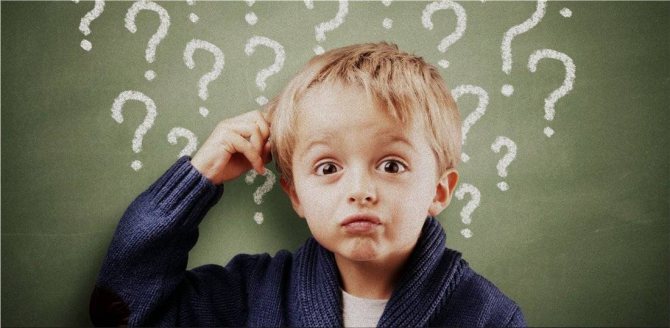
Experts are studying this niche of diseases separately. Memory problems in childhood affect a person’s entire life. It is not easy for a child to overcome the school curriculum; problems begin to communicate with peers. The problem can be either congenital mental fatigue or an acquired condition.
Children remember and reproduce information poorly, or entire episodes completely disappear from their memories. Most often, disorders appear after diseases: hypovitaminosis, frequent acute respiratory viral infections, asthenia. Problems and conditions in the family, society, and school have an adverse effect.
Children with poor vision require special attention. Since this organ is the main one in receiving information, the child gradually loses contact with the outside world. Lack of emotional attachment to objects disrupts concentration. In this case, auditory and verbal-logical memory can develop, but motor and visual memory sharply decline.
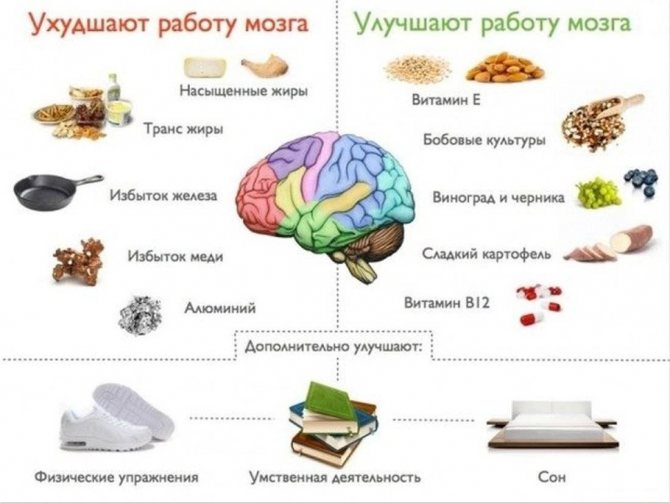
Doctors do not advise immediately turning to drug treatment, unless of course there are injuries, alcohol poisoning, or congenital diseases in children. There are many ways to improve your memory without resorting to drugs. Most often, the memory is simply not developed enough, or the baby is restless and hyperactive. Here lies another difficulty: children are reluctant to make contact, realizing that they are being forced to change something about themselves. Therefore, exercises to improve memory should be unobtrusive and easy. So, what should parents do:
- "How was your day?" The child will enthusiastically tell you what he did in kindergarten or school. In this case, it is necessary to ask him additional specific questions: “What color of Katya’s dress was she wearing today?”, “What did Sasha say when you played,” etc. At first, the chronology of events may be disrupted, but gradually the child will learn to clearly remember the sequence of actions.
- Books are a faithful assistant. At an early age, it is better to read light poetry to your child. Rhyme is easier to hear and is remembered. Ideally, instill in your child a love of reading and make it a mandatory ritual to read at least a few pages every day. After this, unobtrusively ask the children what they liked, what they remembered from what they read, and how they feel about it personally.
- Games with a child. In the modern world it is difficult to do without innovative technologies and gadgets. But here these things can help parents. There are a huge number of games for concentration. These could be activities like “Find the differences between the pictures”, “Search for objects”, “Repeat the phrase”, etc. Organize an evening of family games in “Baldu” (composing words), “Cities”, “Associations”. You can do this on the way to the garden, school, or store. Ask your child to come up with all the possible rhymes for a certain word or count the red cars you meet along the road.
- We strain our memory. The previous block talked about the importance of using gadgets to attract a child's interest. But open access to information technology at any time will not help. In the age of innovation, there is no need to keep anything in memory; everything is available on the Internet. If your child has forgotten something, give him a few minutes to remember on his own. Well, then tell me or allow me to use the dictionary/Internet.
- Sports and outdoor games. Physical activity strengthens the general condition of the body. Stimulating blood flow and saturating the brain with oxygen helps improve concentration and memory.
- Foreign languages. Foreign languages will help both children and adults if their memory has deteriorated. This also includes learning to play musical instruments, chess and even dancing. But when learning languages, it is important to ensure that the child does not memorize letters and spellings, but has an association with each word.
In addition to all of the above, if memory is poor, it is necessary to monitor the child’s nutrition. The diet should include foods that improve memory and brain function: spinach, carrots, broccoli, fatty fish, bananas, walnuts.
Studying short-term and long-term types of memory in children 4-5 years old
Preschool childhood is a very short period in a person’s life, only the first seven years. But they have lasting significance. From a completely helpless being who can do nothing, the baby turns into a relatively independent, active person. All aspects of the child’s psyche receive a certain development, thereby laying the foundation for further growth.
Memory is the ability to reproduce past experiences, one of the main properties of the nervous system, expressed in the ability to store information for a long time and repeatedly enter it into the sphere of consciousness and behavior. Memory impairment in children of primary school age can be a separate defect in the formation of mental functions or part of a whole complex of them. A child with a weak memory usually does not master the school curriculum well and violates discipline in the classroom. Impaired short-term memory leads to the fact that schoolchildren have difficulty remembering the content of the lesson and the teacher’s instructions. This can lead to serious performance problems. Due to memory problems, children are often perceived as lazy or poorly motivated. Problems with visual memory in a child can manifest themselves in poor perception of the sequence of words and slow acquisition of reading skills.
Features of memory development in children 4-5 years old. The main feature of memory development in preschool children is the involuntary nature of memorization. This process occurs regardless of the child’s desire or volitional effort. Memorization and recollection are carried out within the framework of a specific activity and strongly depend on its characteristics. In the absence of developmental disorders, a 4-6 year old child can remember what he paid attention to during the activity, something exciting, interesting, evoking strong emotions.
Short-term memory is a way of storing information for a short period of time. The duration of retention of mnemonic traces here does not exceed several tens of seconds, on average about 20 (without repetition). In short-term memory, not a complete, but only a generalized image of what is perceived, its most essential elements, is stored. This memory works without a preliminary conscious intention to memorize, but with an intention to subsequently reproduce the material. Short-term memory is characterized by such an indicator as volume. It is on average equal to 5 to 9 units of information and is determined by the number of units of information that a person is able to accurately reproduce several tens of seconds after this information has been presented to him once.
Long-term memory is a memory that can store information for an almost unlimited period of time. Information that has entered the storage of long-term memory can be reproduced by a person as many times as necessary without loss. Moreover, repeated and systematic reproduction of this information only strengthens its traces in long-term memory. The latter presupposes a person’s ability, at any necessary moment, to recall what was once remembered by him. When using long-term memory, recall often requires thinking and willpower, so its functioning in practice is usually associated with these two processes.
Today, the problem of memory development in preschool children is relevant and socially significant. Preschool age is a stage of significant changes in mental development. It follows from this that memory, like any other mental process, undergoes significant changes, which consist in the fact that the child’s memory gradually acquires the features of arbitrariness, becoming consciously regulated and mediated.
Types of memory
| By leading analyzer | By subject and activity material | According to the duration of the process | According to the form of mental activity |
| Visual | Motor | Short term | Involuntary |
| Auditory | Emotional | Long-term | free |
| Tactile | Educational | Operational | |
| Olfactory | Verbal | ||
| Flavoring |
Many domestic psychologists (G.A. Uruntaeva, Yu.A. Afonkina, L.S. Vygotsky, R.S. Nemov, M.V. Gamezo, I.A. Domashenko, etc.) have studied the psychological characteristics of the memory of preschoolers. It is known that the effectiveness of learning in preschool age largely depends on the degree of memory development. And this, in turn, proves the usefulness and necessity of this study.
To study the memory of children from 4 to 5 years old, we chose the method “Features of long-term and short-term memory” edited by G.A. Uruntaeva, Yu.A. Afonkina. The total number of children is 10. Research base: kindergarten “Tullukchaan”.
Preparation of the study. Choose 3 sets so that each one can be based on a theme, for example: animals, fruits, transport.
Conducting research. The experiment is carried out individually with children 4-5 years old.
Procedure: 1. The child is presented with pictures with images that he must examine. “I’ll show you the pictures now, and you look at them carefully.” After this, the child is asked the question: “Name the pictures that you remember.”
2. The child is shown the second set of pictures in 4 rows, i.e. into 4 groups: “Look carefully where whose house is.” After this, the child remembers and on the second attempt he reproduces what he saw.
3. The child is shown the third set of pictures (from 10 pieces of different objects, animals, clothes, fruits...) I suggest you remember them. Each picture is exposed for 3 s. After showing all the pictures, the children reproduce the image from memory.
Data processing: in terms of the number of object names reproduced, children aged 4-5 years basically coped with the main task. A repeat study to identify long-term memory is carried out after 2-3 days. Thus, the study of short-term and long-term memory in preschool children 4-5 years old is reflected in the following indicators: 10 children - 100%, high level - 5 children (50%), average level - 3 children (30%), low level - 2 children (20%). At the next stage of our research, we plan to study the relationship between the characteristics of memory development in conditions of responsible parenting (whether parents work with children to develop their cognitive sphere, and, in particular, memory) based on comparison with families in which this aspect is not given importance. We plan to add questionnaires and questionnaires for parents to the study.
Memory problems in young and middle-aged people
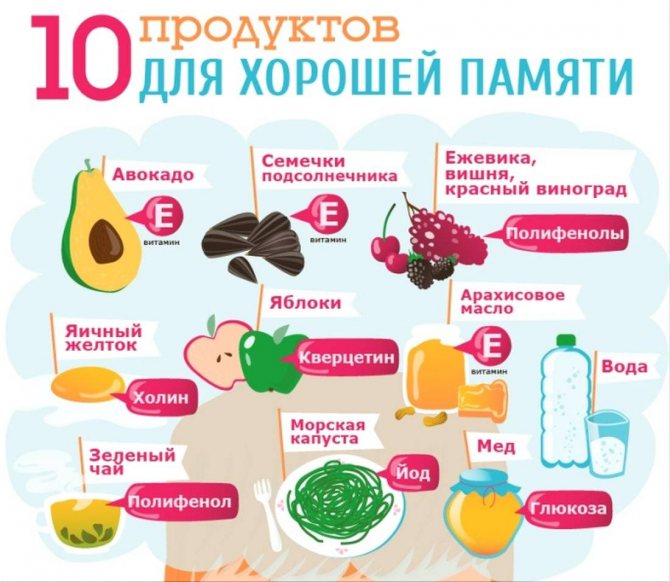
Unfortunately, the realities of the modern world are such that disorders of memory, consciousness, and concentration are no longer a disease of pensioners, but of adolescents and young people aged 18 to 35 years. This is associated with vigorous life activity. Often the cause is the use of alcohol and drugs, when a clouded consciousness causes severe memory loss. These “holes” become increasingly difficult to fill over time. But an active life, the desire to earn money, and get a prestigious education do not always go side by side with success and good health.
Constant stress, fatigue, lack of sleep are critical causes of early aging of the body and memory impairment. When memory problems appear, what to do in the first stages? The main mechanisms may be the use of medications prescribed by a doctor, a proper diet consisting of fruits and foods rich in iron, zinc, B vitamins, and a healthy lifestyle. But memory training will also play a significant role in restoring these brain functions.
The very first thing you should do is wean yourself from constant contact with mobile devices. It's not just about radiation, which actually has a detrimental effect on brain activity with constant contact. The absence of the need to think, remember, the ability to act mechanically without the need to think about the meaning of the composed sentence is the first step towards degradation.
It is necessary to consult a specialist: psychologist, neurologist, neuropsychologist or therapist for advice if problems arise. Most likely, the doctor will prescribe nootropic medications after obtaining a complete medical history. But there are tips on how to quickly improve your memory on your own. There are many techniques for this. One of them was developed by Dr. Kadtz, an American professor:
- Try to do all the usual household chores (washing dishes, making tea, wiping dust) with your eyes closed, remembering how and where the necessary items are located. But it is important to monitor safety. This will return the ability to think, and not act mechanically.
- Right-handed people should try using their left hand, and left-handed people should try the opposite. This activates the second hemisphere of the brain. And, as you know: one head is good, but two are better.
- A good comprehension task would be to learn Braille (for the blind) or sign language. An alternative form of social connection can help exercise your brain.
- Master the technique of typing on a keyboard with 10 fingers. Detailed and accessible lessons are easy to find on the Internet.
- Try to identify the denomination of coins by touch.
- Reading books on various topics, even if previously unknown or uninteresting, will help you learn new skills, awaken your imagination and desire for self-learning. A guy can read about cooking, and a girl can take a book about famous racers.
- It is worth visiting new places more often, remembering their location, routes to them, people, landscapes around and the interior inside. Meeting new people will also help.
There is a technique for memorizing foreign words for a long time that can restore memory. It is suitable for almost all ages. So what can you do:
- Visualization. To quickly get used to the names of objects in a foreign language, try hanging stickers with translations around your apartment. They will constantly catch your eye, and your brain will get used to them.
- Antonyms. Having learned the word “good”, immediately find its antonym “bad”. This makes it much easier to appeal with expressions.
- Repetitions. Once you have learned a few words during the day, be sure to repeat them throughout the day and the next morning.
- Drawing up proposals. You have a goal - to learn 10 words a day. It’s better not to memorize them, but to make sentences (even if they are meaningless for now). But you will begin to understand the very meaning of words and their application.
- Voice memorization. You can find many programs where the user hears the voice of a word. Ideal for those who decide to watch films from foreign countries in the original.
And again, a complete recipe for regaining your memory: giving up alcohol, smoking, and junk food. Among the methods for quickly training your memory, there is one more popular one. Before going shopping, don’t write lists, but imagine how you put everything out of the bags: fruit in a vase, sausage on the middle shelf of the refrigerator, a loaf on the table, toothpaste in the bath, etc.
If you constantly catch yourself thinking: “I can’t remember something,” a psychologist can help you figure out the reasons. And modern hypnosis techniques can bring out the most forgotten memories. But these are more radical methods of treatment.
Causes
Amnesia is said to occur when the memory block located in the lower part of the brain (located in the occipital region) “closes.” If it "opens" within a few seconds or hours, it is considered short-lived. The question is what are the reasons that force him to lock himself away. They are so diverse that it is almost impossible to list them all. But the most common factors need to be named.
Alcohol
After severe alcohol intoxication, the body devotes all its efforts to restoring liver function and eliminating harmful substances. During these few hours of a hangover, cerebral circulation is insufficient. Hence the severe headache and short-term loss of memories. By the way, some blocks can be so securely sealed that not everyone, even after the final “recovery,” can remember last night.
Dream
Short-term memory loss after sleep is one of the most common phenomena and at the same time the most controversial and mysterious. On the one hand, everything is easy to explain: after a bright, deep and vivid dream, it is difficult to switch to reality, so for several seconds a person does not understand who he is and what he is doing here. On the other hand, psychologists have their own opinion on this matter. They say that people who are dissatisfied with their present life are predisposed to such a syndrome. Most often, they experience depression, and they definitely need the help of a specialist to overcome internal complexes.
Doctors also have their own opinion. If this happens frequently and regularly, they advise contacting an otolaryngologist. According to some studies, this same memory block “closes” when a person is in deep sleep, due to systemic or chronic diseases associated with the ear canals.
Age
The older a person is, the worse cerebral circulation becomes. Hypertension, the need to take too many medications, atherosclerosis, conditions after ischemia or a heart attack - all this provokes short-term memory loss in older people. That’s why they so often forget why they called their daughter, came to the kitchen, or poured water into the pan. Most often, this syndrome is diagnosed in those over 50 with high blood pressure. If you normalize it, the disorder will stop bothering you.
Traumatic brain injury
In 50% of cases, short-term memory loss in young people is diagnosed after hitting the head (the result of a fight, accident, extreme sports). It is usually not strong and does not cause fainting or concussion. However, with a bruise, small capillaries may be partially damaged, which provokes the effect of fleeting amnesia.
Among young people, stress, unbalanced nutrition, lack of sleep patterns, taking illegal substances and other aspects of an unhealthy lifestyle also become provoking factors.
Organic causes include:
- excessive physical activity;
- stroke, heart attack;
- atherosclerosis;
- drug addiction, alcoholism, substance abuse, smoking;
- improper use of medications (sleeping pills, sedatives, tranquilizers, antidepressants);
- hypoxia;
- hormonal disbalance;
- brain infections;
- migraine;
- diabetes;
- epilepsy.
Short-term memory loss often results from psycho-emotional factors: severe stress, depression, depression, severe mental trauma. After shocks, the body’s protective function is triggered: it tries to block unpleasant, destructive memories. For example, a person in a state of passion is not able to reproduce the quarrel that just occurred.
Short-term memory loss in children is usually diagnosed due to congenital brain defects, chronic syndromes, poor nutrition or educational neglect. If the child is regularly examined by doctors and the parents are involved in his comprehensive development, such deviations are not observed.
Related article: Memory problems
Effective methods for improving memory: medical help and independent work
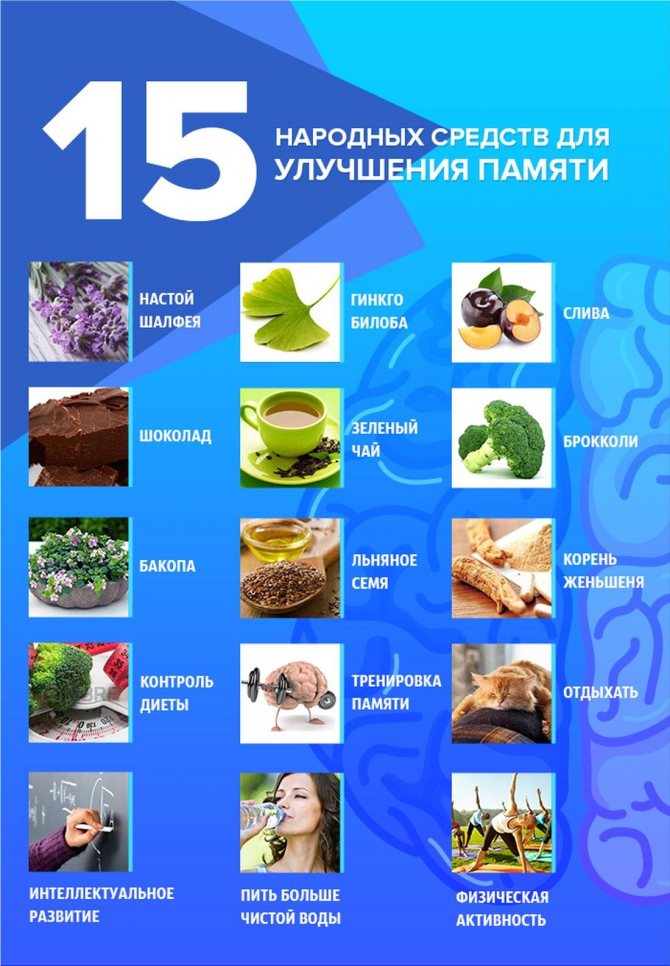
The problem of memory loss begins to worry more people close to a person than he himself. The cause is most often the usual fatigue of the body. Mechanically, this can be explained as wear of parts. At the beginning, people simply forget why they went into the room, then a deeper process begins when they cannot remember a certain word. It may end in failure to recognize close relatives. It will be difficult to restore memory if the disease develops.
How to restore memory and attention quickly? The most important thing is to promptly contact a specialist who will conduct all the necessary tests and assess the patient’s condition. The most commonly prescribed mild medications are:
- Donepezil. Affects the development of activity, reduces dementia.
- Memantine. These are pills that improve memory and brain function and relieve depression.
- Bilobil. Based on glucose, which is beneficial for the brain and blood circulation.
- Vitamins of general action.
But alternative means have always been popular. If memory is bad, many people prefer traditional methods rather than prescribed pills. Experts give advice on how to restore a person’s memory using folk remedies:
- Walnut leaves. Pour 50 grams of leaves into a liter of boiling water, leave for 24 hours and drink 3-4 sips 3 times a day. The disease not only stops its progression, but can also disappear completely.
- Eleutherococcus. Boil the roots of the plant for 10 minutes. Take the infusion 4 times a day, 5 tablespoons.
- Thyme. Pour boiling water over a tablespoon of thyme and leave for about half an hour. The pleasant taste allows you to drink it like regular tea 3 times a day after meals.
These are the most common recipes for treating memory impairment in adults using traditional methods.
Alternative methods for treating memory impairment

Any alternative treatment methods should be discussed with your doctor. He will tell you how to improve your memory at home without harming your body. Incorrect prescription of folk remedies can cause allergies and subsequent problems. The main component of treatment is the use of medicinal herbs.
- Pounded calamus root is taken in dry form with warm water. Contraindicated for kidney disease.
- Elecampane root. A vodka tincture is made from it: a tablespoon of root per 0.5 liter of vodka. The tincture should stand for a month, after which you drink a spoon three times a day. It is strictly forbidden to be used by pregnant, lactating and people with diseases of the gastrointestinal tract or cardiovascular system.
- Rowan bark. Boil a tablespoon of crushed bark in one glass of water for 10 minutes. Strain, cool and drink a tablespoon three times a day.
- Clover tincture. Fill a liter glass jar halfway with grass, without compacting it, and fill it with vodka. After 2 weeks, take the infusion one tablespoon before bed.
- Sage and mint. Mix a tablespoon of raw material in half a liter of boiling water and leave overnight. Take a spoonful three times a day on an empty stomach for a month.

If there is the slightest deterioration in your general condition, consult a doctor immediately. There are interesting exercises for maintaining memory. They are suitable for all ages, as they involve several brain functions at once. Doctors did not find any contraindications for them.
- Using an organizer. No matter how much you want to load your brain with information, it also needs rest. There is no need to rummage through the darkness of memory to remember the phone number you said 2 weeks ago; humanity has thoughtful options for this.
- Reverse crossword puzzle. Try not just to solve the crossword puzzle, but to enter completely different words into it, but matching the letters. Believe me, after 7-8 words, you will be interested in filling out this pun.
- Hobby. It's never too late to start doing something new.
How to solve memory problems:
We often have trouble remembering something specific. For example, faces remain in memory, but names fly out of your head after 5 minutes. Try to associate the name with something familiar and translate it to the person: Lilya - she had a strong aroma of floral perfume, Tatyana - looks like a Pushkin character, Maxim - that’s the name of my geography teacher, etc.
One cannot help but recall another folk recipe called “Golden Water”. It is claimed that if you boil gold jewelry in ordinary water and wait for the liquid to evaporate by exactly half, then this drink can develop memory in adults.
There is another version that this water has general healing properties. Those who studied well at school know that gold does not react even with strong acids (except for aqua regia). Therefore, drinking such water boiled with jewelry not only makes no sense, but can be dangerous to health, because a lot of dirt collects on body jewelry.
The Indians had their own principle of improving memory. They carried small bags with various herbs. When there was a need to remember an event or person, they opened another bag and associated what was happening with the smell. Quite a good technique for the modern world. You can remember not only a face, but abstract for a second and pay attention to the light, objects, smell, weather, interior. This will help you reconstruct events later.
Memory restoration is a labor-intensive process and must involve several courses. You cannot rely only on traditional methods or training. A course of treatment can not only improve, but also completely eliminate the problem.
Short-term memory
Short-term memory ensures the retention and subsequent reproduction of operational information. Its presence in humans was proven by the German scientist Hermann Ebbinghaus in 1885. He assessed the efficiency of recalling random letters, numbers and symbols after one reading and proved that such information can be accurately reproduced in a limited quantity. The volume of short-term memory occupies an average of 5-10 units. Why does a person need RAM?
The main property of such memory is its short duration, since information is stored for several minutes, and sometimes even seconds. The mechanism of short-term memory is quite complex, and there is no unified theory on this matter yet. Whatever information you want to master, any memorization begins with complex electrochemical processes in the brain, because short-term memory is based on the impulsive activity of neurons and the circulation of excitation along closed circuits of neurons.
The use of strong electrical influence on the human brain played a very important role in determining the mechanisms of memory. The results of the study showed that after exposure to electric shock, retrograde amnesia occurs, which manifests itself in the fact that a person does not remember anything about the events that preceded such an effect on the brain. The same amnesia occurs as a result of severe concussion, bruise and anesthesia. The duration of retrograde amnesia can tell us about the time of memory consolidation, that is, how long it takes for short-term memory to move into long-term memory. As a rule, memory consolidation begins after 5-10 minutes.
A study of the development of the state of retrograde amnesia using a human example enabled scientists to formulate a hypothesis about the mechanism of short-term memory. We are talking about the hypothesis of reverberation of excitation along closed neural chains. It has been established that in closed circuits, neural circulation (another name for reverberation) lasts a couple of minutes, storing data in the form of a certain sequence of impulses. The latter are transmitted from one neuron to another. There is an opinion that during movement, exposure to any stimulus preserves a neural trace.
The hypothesis described above is directly related to everyday experience and indicates that learning requires constant practice - repeatedly carrying out the studied material through consciousness. Thus, short-term memory becomes long-term memory.
Short-term memory is a type of memory that is characterized by a very short data storage time. The received information is lost due to the influence of the temporary factor or due to the new arrival of the next piece of information. In addition, short-term memory is distinguished by a relatively small number of reproduced elements. Received information enters long-term memory from short-term or sensory memory only when the individual pays attention to it and repeats it repeatedly. Due to the enlargement of information units that enter short-term memory, the total number of its elements can increase. Data is stored within such memory in a modal form.
Recently, scientists have been working not only to explain the phenomenon of short-term memory and its mechanisms, but also on methods for testing and training it. Today there are many special tests and tasks that will help determine what kind of short-term memory you have and evaluate it according to various parameters.




